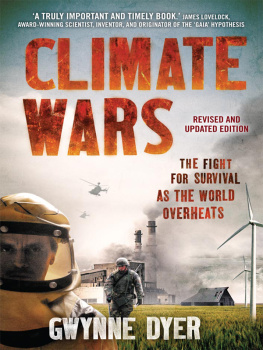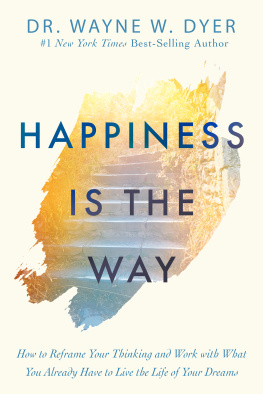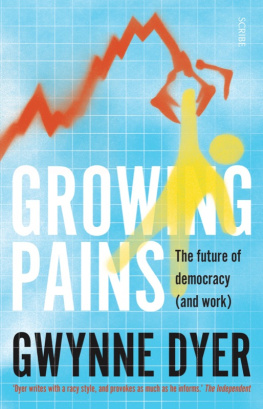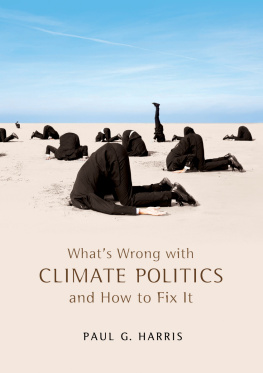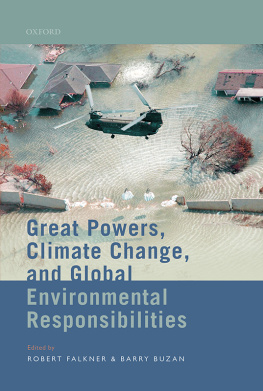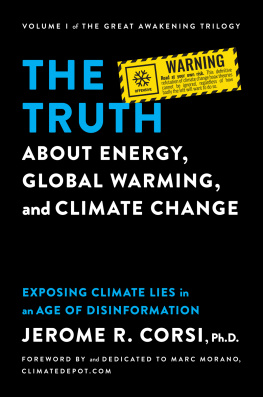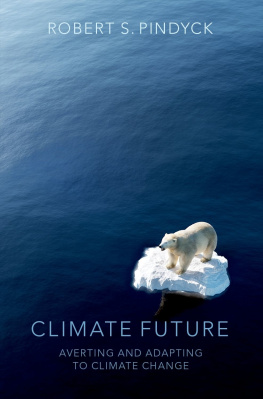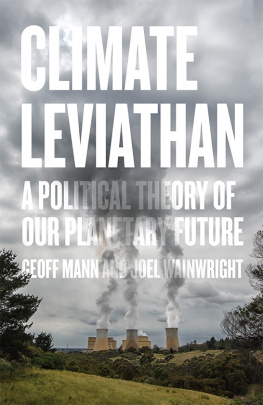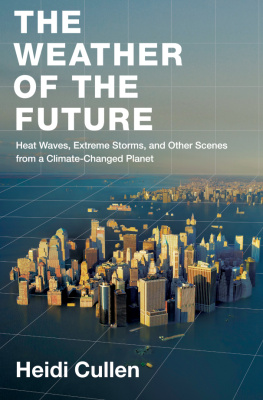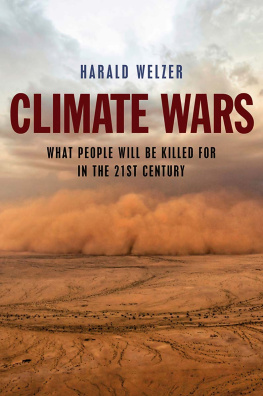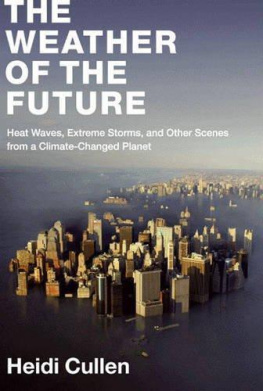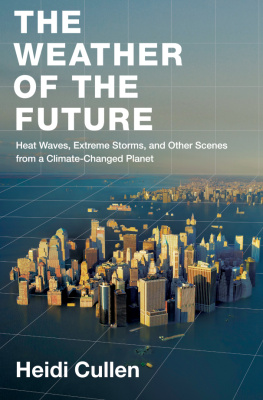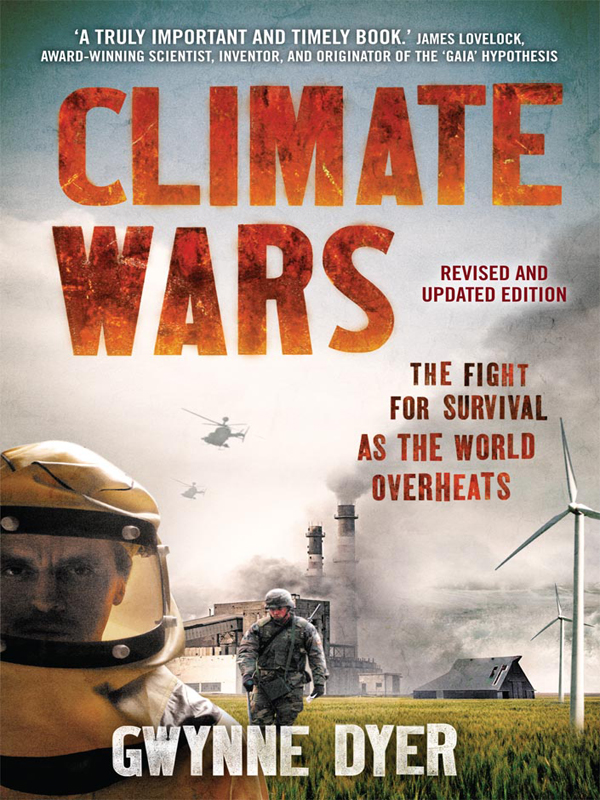
CLIMATE WARS
Like a Stephen King novel, its scary, but you cant put it down.
G Magazine
Anyone still complacent about climate change will find Climate Wars instructive and disturbing. These articulate insights into climate geopolitics by Gwynne Dyer are an important tool for understanding why the climate challenge is big, hard, and vital to human survivalyet soluble if we pay attention now.
Amory Lovins, Time Magazine Hero of the
Environment and chairman & chief scientist,
Rocky Mountain Institute
Gwynne Dyers brilliant analysis, in Climate Wars, of the geopolitical conflicts that may unfold over the next few decadeseven if we do get serious about global warmingis almost too fearsome to absorb.
Clive Hamilton, The Monthly
Dyer is an accomplished military historian who bolsters his extensive knowledge with a rhetorical style that is at once invisible and entirely convincing.
Publishers Weekly
This is a truly important and timely book. Gwynne Dyer has made the best and most plausible set of guesses I have yet seen about the human consequences of climate change, of how drought and heat may ignite wars, even nuclear wars, around the globe.
James Lovelock, award-winning scientist,
inventor, and originator of the Gaia hypothesis
Dyer has a gift for providing a unique perspective on war and conflict. Now hes taking on climate change as well.
Peace Magazine
Scribe Publications
CLIMATE WARS
Gwynne Dyer has worked as a freelance journalist, columnist, author, broadcaster, and lecturer on international affairs for more than 20 years. His twice-weekly column on international affairs is published by 175 newspapers in some 45 countries and is translated into more than a dozen languages. He is the author of several books, including War, Future: Tense, and The Mess They Made (all published by Scribe).
CLIMATE
WARS
THE FIGHT FOR SURVIVAL AS THE WORLD OVERHEATS
GWYNNE DYER

Scribe Publications Pty Ltd
PO Box 523
Carlton North, Victoria, Australia, 3054
Email: info@scribepub.com.au
First published in Australia and New Zealand by Scribe 2008
This edition published 2010
Copyright Gwynne Dyer 2008, 2010
All rights reserved. Without limiting the rights under copyright
reserved above, no part of this publication may be reproduced,
stored in or introduced into a retrieval system, or transmitted, in
any form or by any means (electronic, mechanical, photocopying,
recording or otherwise) without the prior written permission of
the publisher of this book.
Printed and bound in Australia by Griffin Press
Only wood grown from sustainable regrowth forests is used
in the manufacture of paper found in this book.
National Library of Australia
Cataloguing-in-Publication data
Dyer, Gwynne
Climate Wars: the fight for survival as the world overheats
New ed.
9781921640711 (pbk.)
Includes bibliographical references.
Climatic changes Regional disparities; Global warming;
Greenhouse gas mitigation.
363.73874
www.scribepublications.com.au
FOR JAMES, WHO WILL SPEND HIS WHOLE LIFE DEALING
WITH THIS. AND, OF COURSE, FOR CARO AND FLOR.
Contents
Introduction
CHAPTER 8: Childhoods End
Recent scientific evidence has given us a picture of the physical impacts on our world that we can expect as our climate changes. And those impacts go far beyond the environmental. Their consequences reach to the very heart of the security agenda.
Margaret Beckett,
former British foreign secretary
THIS BOOK IS AN ATTEMPT, peering through a glass darkly, to understand the politics and the strategies of the potentially apocalyptic crisis that looks set to occupy most of the twenty-first century. There are now many books available that deal with the science of climate change and some that suggest possible approaches to getting the problem under control, but there are few that venture very far into the grim detail of how real countries experiencing very different and, in some cases, overwhelming pressures as global warming proceeds, are likely to respond to the changes. Yet we all know that its mostly politics, national and international, that will decide the outcomes.
Two things in particular persuaded me that it was time to write this book. One was the realisation that the first and most important impact of climate change on human civilisation will be an acute and permanent crisis of food supply. Eating regularly is a non-negotiable activity, and countries that cannot feed their people are unlikely to be reasonable about it. Not all of them will be in what we used to call the Third Worldthe developing countries of Asia, Africa and Latin America.
The other thing that finally got the donkeys attention was a dawning awareness that, in a number of the great powers, climate-change scenarios are already playing a large and increasing role in the military planning process. Rationally, you would expect this to be the case, because each country pays its professional military establishment to identify and counter threats to its security, but the implications of their scenarios are still alarming. There is a probability of wars, including even nuclear wars, if temperatures rise 2 to 3 degrees Celsius. Once that happens, all hope of international cooperation to curb emissions and stop the warming goes out the window.
As this is a book about the political and strategic consequences of climate change, for the basic science and some of the more common physical global-warming scenarios, I have depended mainly on published secondary sources, such as the 2007 Intergovernmental Panel on Climate Change Fourth Assessment Report and the 2006 Stern Review on the Economics of Climate Change, supplemented and updated with interviews where necessary. Indeed, in some ways the interviews are the real foundation of the book: trekking around a dozen countries talking to the scientists, soldiers, bureaucrats and politicians who are immersed in these issues on a daily basis has been an enlightening experience, and one that did much to restore my trust in the rationality of human beings. All indented quotations in the text are taken verbatim from my interviews with the speakers unless some other source is given.
There must remain some infinitesimal possibility that the skeptics are right and everybody else is wrong, but the evidence for global warming caused by human activities is so strong that urgent action is required. The potential cost of doing too little, too late is vastly greater that the cost that might be incurred by doing more to fight global warming than turns out, at some later date, to have been strictly necessary.
The scenarios that precede each chapter are not intended to be predictions, but only examples of the kinds of political crisis that could be caused by climate change. Neither are they components in some larger vision of how the future will unfold; each stands alone, and it is of no importance if one should contradict another. When I quote experts from interviews or other sources in these scenarios, it is solely to illustrate that some assumption I am making is regarded as plausible by the experts, and does not imply that the person quoted agrees with or has even seen the scenario in question. The dates I have assigned to the various scenarios are particularly arbitrary, and could easily be pushed down several decades if global warming proceeds more slowly than the latest evidence seems to suggest. All that said, I have tried to make the scenarios as credible as possible, drawing on a lifetime of analysing how the world works as an international-affairs journalist. Sometimes I even got it right.
Next page
